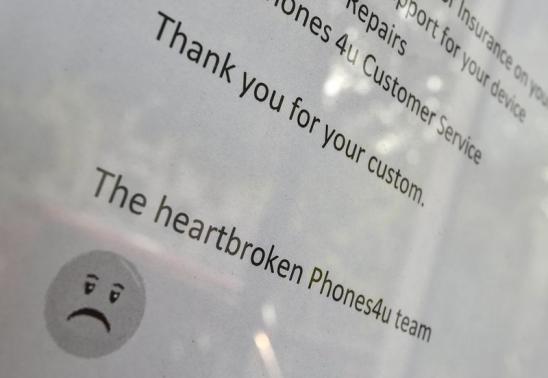Yesterday Phones 4U was in administration, because EE had canceled contracts today is seem that those same organisations that cancelled the contracts are circling to pick over the remains. Professor Andre Spicer, Cass Business School:
“Vodafone and EE have come out as winners. They have eliminated a competitor in retail, gained some plum locations and paid very little in the process. It is unlikely consumers will abandon them as many are locked into contracts and can’t be bothered to change providers when their contracts come up. BC Partners also came away with a 30% profit on their investment. The main losers were investors who bought bonds in the company and employees – the great majority of whom will find themselves out of a job.
“The big question government and investors are asking now is whether management of Phones 4U was negligent. The business carried huge supplier risks. It was like a shop only selling three products. If one supplier pulled the plug, you would be left with bare shelves. They clearly down played the risk of losing a critical asset – their relationship with the networks. If this went sour, the whole business would sour too. BC Partners realised this – that is why they effectively got out of the business in September. Phones 4U had few ways it could decrease this risk. There were no alternative suppliers to turned to. The only real options were to bend over backwards to keep the phone networks happy or to diversify their product range so they were less dependent on selling network access. It seems they did neither.
“In the final analysis the risks were carried by employees and bond investors, while the rewards were reaped by private equity and the phone networks. This is typical of many companies in the UK economy where a combination of financiers and big corporations which dominate an industry get the rewards while employees and everyday investors are shouldered with the losses. The case is likely to re-ignite debate about the role of private equity in the economy and lack of competition in many industries like telecommunications.”
This is a will be an interesting story to follow as it develops.


